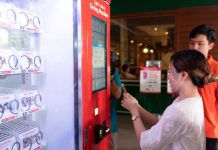March 1 (UPI) — President Donald Trump announced new screening procedures for travelers entering the United States on Sunday after the country experienced its first COVID-19 death over the weekend.
“In addition to screening travelers ‘prior to boarding’ from certain designated high-risk countries, or areas within those countries, they will also be screened when they arrive in America,” Trump wrote on Twitter.
Trump on Saturday had announced that countries including Italy, South Korea, Iran and the epicenter of the coronavirus, China, would face increased screening for passengers leaving to the United States.
Katie Miller, a spokeswoman for Vice President Mike Pence, told CNN the administration is looking to expand the restrictions further if necessary.
“There is already screening for those coming into the United States for those who have been in China in the last 14 days,” said Miller. “This will be expanded to Italy and South Korea. Additionally, we are currently working on exit screening from South Korea, Italy and other European Nations as needed.”
Pence, who was appointed by Trump last week to head the U.S. response to the virus said Sunday there could be more deaths after Washington confirmed the death of a man in his late 50s on Saturday.
“For most people that contract the coronavirus, they will recover. They will deal with a respiratory illness, we’ll get them treatment,” he said, citing information he received from National Institute of Allergy and Infectious Diseases director Anthony Fauci. “But for people that have other conditions that would militate toward a worse outcome than that, we could have more. We could have more sad news. But the American people should know the risk for the average American remains low.”
There were 22 confirmed and presumptive positive cases of the virus in the United States as of Saturday, according to the Centers for Disease Control and Prevention. There are an additional 47 cases of people repatriated to the United States from the Diamond Princess cruise ship and Wuhan, China.
Presumptive cases have to be confirmed by CDC testing.
Of the cases of people not repatriated, nine are person-to-person spread, including three confirmed, according to the CDC. Some of these cases are considered “community spread,” meaning they didn’t have relevant travel history or exposure to another known patient with COVID-19. The first case of this type was confirmed Wednesday in California.
Seattle and King County Public Health announced two more confirmed cases of COVID-19 in King County residents, both males in their 60s with underlying health conditions.
One is “in critical but stable condition” and the other is in critical condition.
The total number of cases in the state are six, including the fatality.
Washington Health Department spokeswoman Katie Ross said the two cases announced on Sunday are not linked to Life Care Center, a long-term health facility associated with two other cases in the state where more than 40 residents and staff are experiencing symptoms and will be tested for coronavirus.
The Rhode Island Department of Health announced the state’s first presumptive case of COVID-19 on Sunday, identifying the individual as a person in their 40s who had traveled to Italy in mid-February.
Late Saturday, the Illinois Department of Public Health and Cook County Department of Public Health announced that one Illinois patient has tested positive for COVID-19 and is in isolation.
Previously, Illinois had two cases and both patients made a full recovery, according to the state health agency.
Pence on Sunday responded to concerns about a lack of testing kits for the virus, saying 15,000 kits have been released with plans to send out more than three times more.
“The FDA has approved a testing regimen that state and local officials can be using,” he said. “And beyond that we actually are working with a commercial provider with new testing framework to send another 50,000 kits out.
Amid a shortage of face masks nationwide, U.S. Surgeon General Dr. Jerome Adams said people should stop buying them.
“Seriously people- STOP BUYING MASKS!,” he posted on Twitter on Saturday night. “They are NOT effective in preventing general public from catching #Coronavirus, but if healthcare providers can’t get them to care for sick patients, it puts them and our communities at risk!”
He said the immediate health risk is considered low and there “simple steps” to stay healthy.
The surgeon general said signs and symptoms are fever, cough, shortness of breath.






